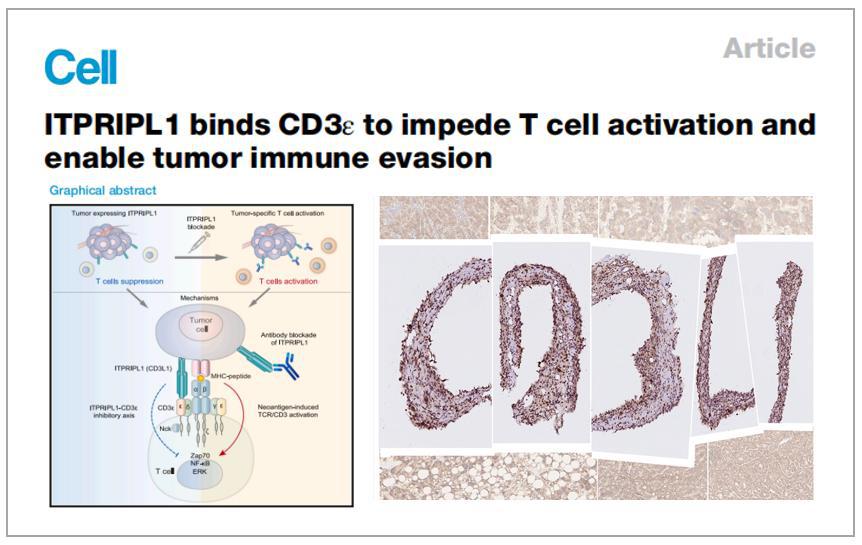Scientists shed light on crucial mechanism in tumor immune evasion


Scientists from the Institutes of Biomedical Sciences at Fudan University in Shanghai recently shed light on the gene CD3L1 in their research, revealing it as a crucial mechanism in tumor immune evasion, especially in patients who respond poorly to PD-1/PD-L1 inhibitory therapies.
Previously, PD-1/PD-L1 was one of the most widely used effective drug targets, but a large number of patients do not respond well to those immunotherapies.
A paper of the new research was published on the website of the journal "Cell" on Friday.
In the paper, the scientists said that the expression of CD3L1 exhibits several intriguing characteristics, including its mutual exclusivity with PD-L1 expression in most tumors, its prevalence in tumors resistant to PD-1/PD-L1 blockade, and enrichment in immune-privileged organs.
Such features suggest alternative immune evasion pathways and highlight the role of CD3L1 in maintaining immune privilege, they said.
They also found through knockout studies in mice that CD3L1 plays a pivotal role in maintaining immune privilege, as its absence led to substantial autoimmune reactions in the testis.
The CD3L1 antibody is currently in phase I clinical trials after obtaining investigational new drug approvals in both the United States and China. Its clinical trials for the treatment of multiple solid tumors in advanced stage are recruiting patients.
- Gansu sets up team to probe abnormal blood lead levels in children
- China publishes Han-Tibetan version of major dictionary
- People advised to guard against dengue fever, diarrhea and other diseases
- Exploring China's Xixia Imperial Tombs with Yuanxi
- SCO foreign ministers council meeting to be held in Tianjin
- Foreign officials praise Chinese gardening culture for promoting harmony





































